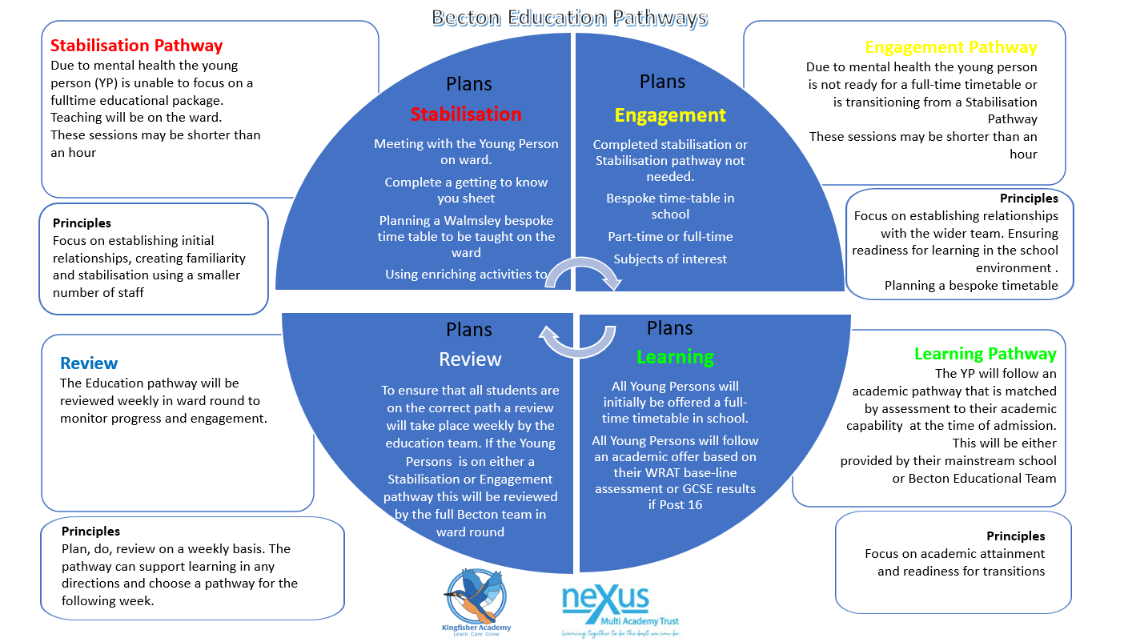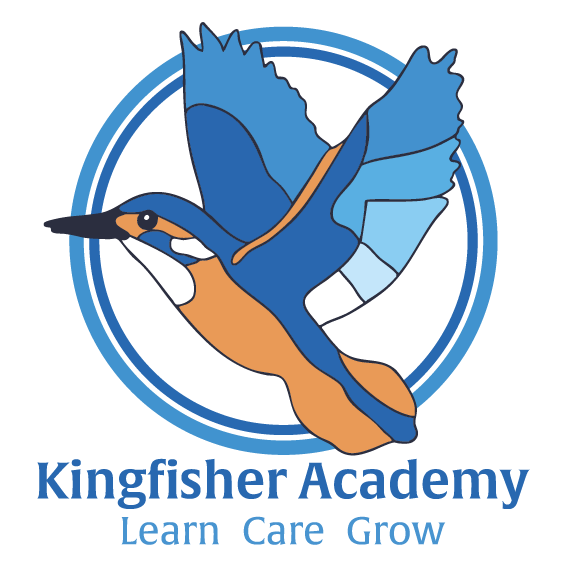Becton Centre (Tier 4 in-patient CAMHS unit)
At Becton, our Tier 4 CAMH unit, the school comprises four lodges, each designed to follow bespoke educational pathways tailored specifically to the children and young people (CYP) in our care.
The four lodges have different purposes.
- Amber Lodge is an assessment unit for primary-aged pupils consisting of both an educational and clinical context. Following a 6-week initial assessment and information-gathering process by education staff and NHS staff, primary-aged children attend Amber Lodge for one day a week as a day patient for between 3 months and a year. During their day of attendance, they are in receipt of up to two 45-minute therapeutic education sessions alongside other therapeutic nursing sessions. Children’s academic ability and the underlying reasons for their presentation within an educational setting are assessed. All information gathered, both through delivered sessions and assessments, is used to provide feedback to the child’s home school, LEA and their parents about their educational and SEMH needs and next steps. Assessments, including WRAT evaluations and Dyslexia screeners overseen by a qualified dyslexia assessor, are utilised to craft detailed support plans.
- Ruby Lodge functions as an in-patient assessment unit for CYP aged 8 - 18 years old, with learning difficulties as well as severe, chronic or complex mental health needs. CYP are referred in by a medical professional. Once deemed appropriate following admission, children access a personalised offer of up to 4 daily academic and therapeutic lessons which are matched to their individualised academic abilities/needs and work towards developing essential social, emotional and life skills. Education is delivered within a nurturing and supportive environment, predominantly in a 1:1 context and through collaboration with the NHS multidisciplinary team, to ensure that each individual receives the personalised support tailored to their individual strengths and needs relevant to where they are at that particular time. All CYP access a thematic curriculum (context for learning), which is then pitched according to their individual needs, which takes into consideration the Engagement Model, Pre-Key Stage Standards and National Curriculum. Assessments are carried out to inform where they are working and individual targets are set, and this drives what children learn in each lesson.
- Emerald Lodge operates as a General Admission Unit (GAU) for in-patients up to 13.5 years, with no lower age limit. Some CYP come in under a section (Mental Health Act). All students complete WRAT assessments to give a snapshot of their core academic abilities at the point of transition into hospital education. The curriculum is as personalised as possible, based on the CYP’s health needs and where possible, there is collaboration with the CYP’s ‘home school’, particularly as CYP are due to return, in order to support with reintegration.
- Sapphire, similar to Emerald, operates as a General Admission Unit (GAU) for inpatients between 13.5 and 18 years old. Some CYP come in under a section (Mental Health Act). As with the other lodges, all students undertake WRAT assessments to gauge their cognitive abilities and potential impact of mental health on their educational engagement. By liaising with their mainstream schools, we aim to provide an academic curriculum that closely aligns with their previous educational experiences.
At Becton, we prioritise core subjects, whilst still providing broad and balanced wherever possible. Our curriculum is overseen by Curriculum Leaders and delivered by subject specialists. We also provide bespoke literacy interventions for those that need it.
Our curriculum is structured around three key pathways— Stabilisation, Engagement and Learning.
- In the Stabilisation pathway, we focus on building a rapport with each young person. Initial meetings involve completing a ‘Getting to Know You’ sheet, which serves as a foundation for understanding individual needs and preferences. Based on this insight, a bespoke timetable is crafted for each young person, ensuring that their educational journey within the lodge is as enriching and supportive as possible. We utilise a range of engaging activities to facilitate this process while prioritising the mental health and well-being of the students.
- The Engagement pathway is initiated once stabilisation is achieved or deemed unnecessary. At this stage, students are provided with a tailored timetable centred on subjects of interest, thereby fostering enthusiasm and motivation towards learning. This phase aims to enhance participation and connection with the educational experience.
- Once a young person is ready to access it, they transition onto the Learning pathway, where a comprehensive curriculum is offered. This academic offer is adjusted to ensure continual alignment with the students’ evolving abilities and needs, and the pathways for each individual are reviewed regularly to track progress and effectiveness. Being in the ‘Learning Phase’ is often aligned with an indication that the CYP is ready to be discharged.
How CYP present over the course of the day can vary considerably and is often affected by factors outside of school, such as the timings of feeds for example.
The curriculum model at Becton consists of 4 hour-long sessions daily. This includes a therapeutic offer which consists of Occupational Therapy, Your Voice, Psychology Therapy Group, Being Together, Art/Drama Therapy Group. These are delivered by NHS staff as part of the CYP’s timetabled day.

